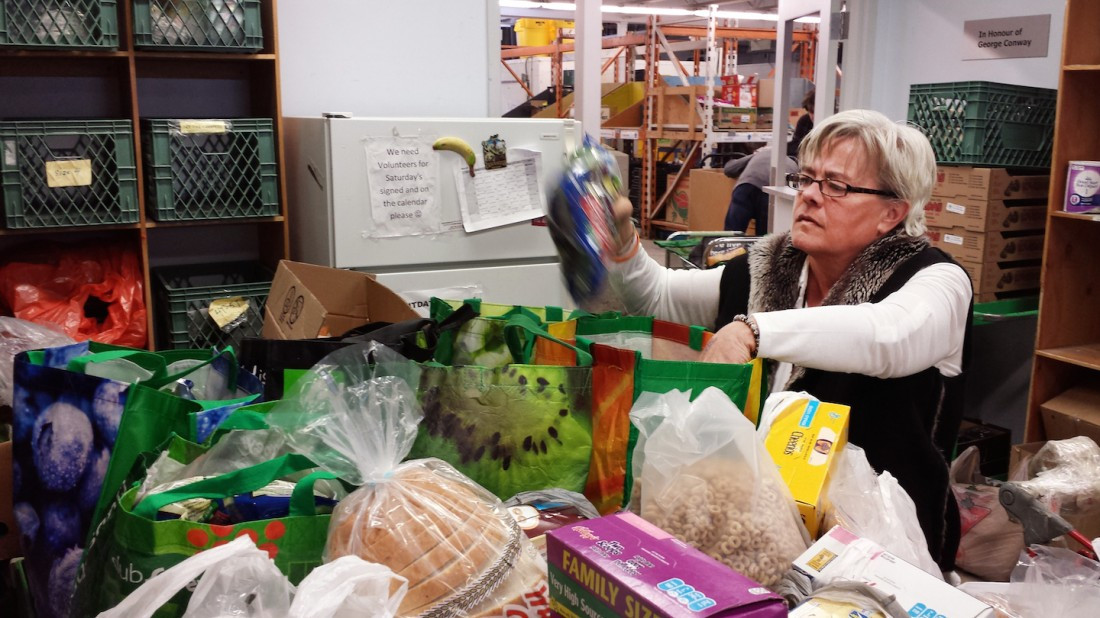Foodbank reliance
20,000 more Winnipeggers using food banks than in 2005
The number of Winnipeggers relying on food banks has increased significantly in the past 10 years, according to the International Institute for Sustainable Development (IISD). The organization announced 20,000 more Winnipeggers rely on food banks now than in 2005.
The Peg, an IISD website that measures the health of communities by tallying studies on various topics, explains that this trend reflects “the efficacy of the food bank system in reaching a large number of people in need, and the number or proportion of people within a population with the need for food, usually due to poverty.”
While this report helps to give a better picture of Winnipeg’s population that is in need of food, it is also an indicator of income inequality in the city.
Jennifer Temmer, a project officer with IISD, explains that while wages and salaries have remained the same, other costs of living – such as housing, electricity and transportation – have increased, leaving people in a position where they have to make sacrifices.
Since there are services that can help Winnipeggers with basic needs, at times people are forced to forego those expenses in order to pay for other necessities that they are less likely to get assistance with.
The food bank is a temporary solution to the immediate need for food but they also provide services that help food bank users to move away from this reliance. Temmer points out that food banks are a central hub for other resources.
Winnipeg Harvest, a founding member of Food Banks Canada, not only distributes food to more than 63,000 Manitobans each month but also provides training services in computer courses, administration and food handling.
“Winnipeg Harvest does a good job of making its services available to people. People don’t feel stigmatized. People who benefit from Winnipeg Harvest will also volunteer there,” Temmer says.
The University of Winnipeg Students’ Association (UWSA) runs a food bank every Friday. Emily Epp, the vice-president internal affairs of UWSA, oversees the implementation of the food bank. She confirms that the UWSA food bank has experienced an increase in use by both students and the community.
“We’ve certainly seen usage of the food bank increase exponentially,” she says.
She says that in 2005, only five per cent of food bank users were from the student body, though she now estimates that students make up for 60 per cent of their users.
“It tells me that students aren’t able to afford their lives. The cost of living forces students to have to make sacrifices.”
She explains that increases in the costs of textbooks, rent and tuition have made it difficult for students to manage their expenses over the past 10 years.
“(Students) are not able to cope with that. We’re happy we’re able to provide this service, but work needs to be done to enable students to afford getting an education and also be a functioning citizen.”
People can register for the food bank online at theuwsa.ca/foodbank/ or drop into the UWSA office.
Published in Volume 70, Number 22 of The Uniter (March 3, 2016)







